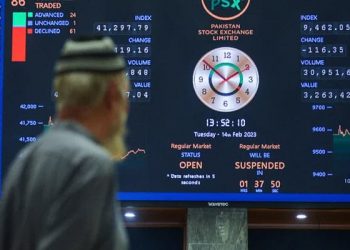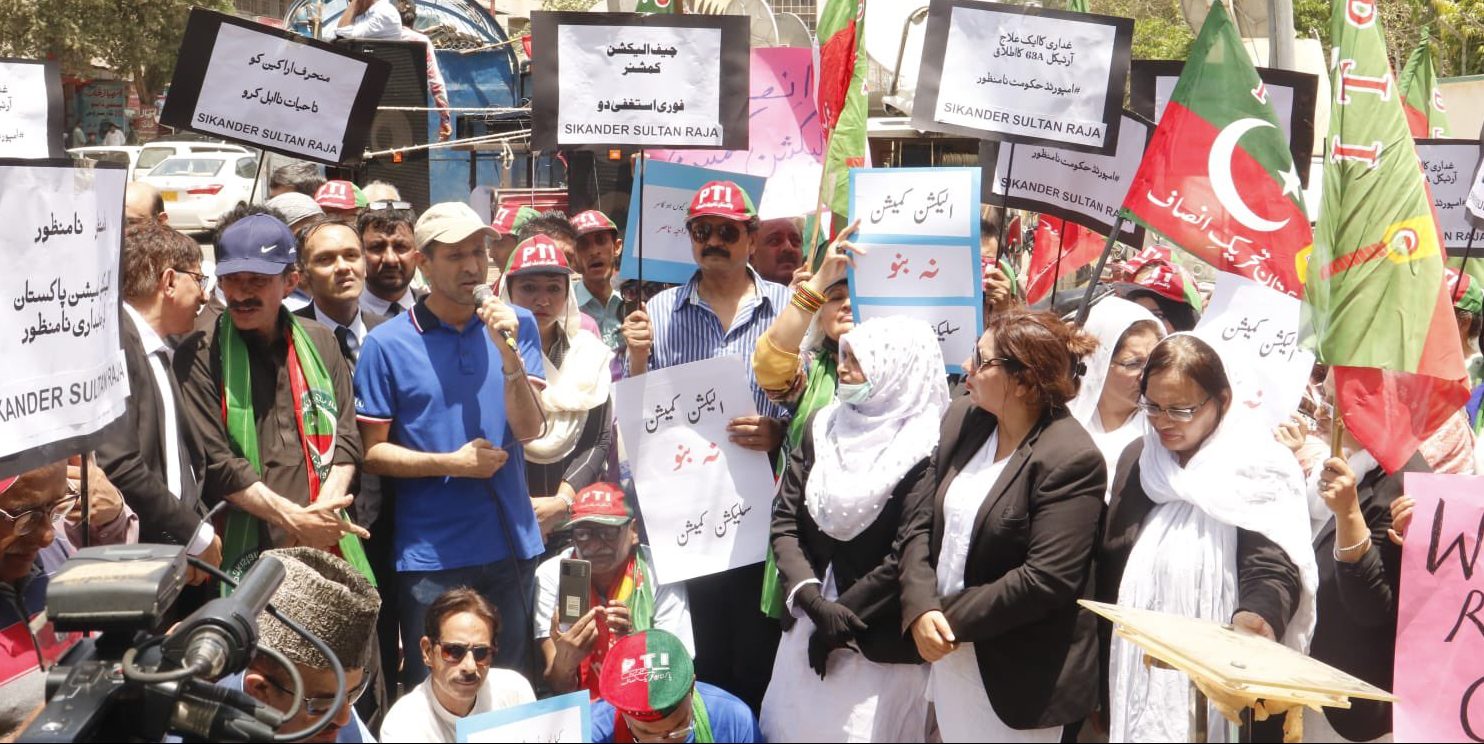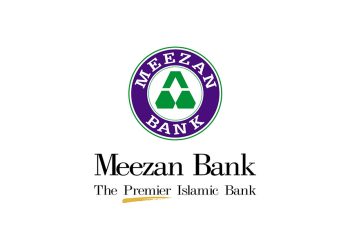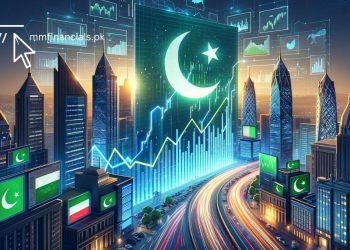PAKISTAN ECONOMY AND LATEST PAKISTAN NEWS UPDATES: Recent events have emphasised opportunities as well as challenges in Pakistan’s economy, which is always changing. Known for its tenacity and flexibility, the country still finds its way through a variety of economic situations, ranging from trade and business operations to global partnerships. We examine the most recent developments and assess how they affect Pakistan’s economic prospects in 2024 in this piece. Find out the latest developments of Pakistan that may or may not have an impact on Pakistan Stock Market and important Pakistan News.
The Pakistan Stock Exchange (PSX) experienced a notable turnaround in its performance today. The trading session commenced on a sluggish note, maintaining a stable level through most of the day. However, during the final two hours, the market witnessed a surge in activity, primarily driven by increased buying in specific sectors. The KSE-100 index, a benchmark for market performance, closed at 63,939.41, marking a significant rise of 657.19 points or 1.04%.
The interbank rate, crucial for understanding a currency’s value, is the rate at which banks exchange currencies. On January 22, 2024, the interbank closing rate for USD to PKR was 279.8510 PKR per USD. This rate is essential as it is used for the revaluation of currency books by authorized dealers and impacts the overall financial market.
Price Drop Gold Pakistan: The domestic bullion market in Pakistan has seen a notable decrease. The 24-karat gold price fell by Rs600 per tola to Rs214,700.
Economic Stability and Growth: Pakistan’s economy has shown signs of recovery, particularly with the stabilization of the Pakistani Rupee (PKR) against the US Dollar. The efforts to curb energy theft and misuse of trade agreements have paid dividends. A notable highlight is the textile industry, a cornerstone of Pakistan’s export sector, generating $8.28 billion in the first half of the financial year 2023-24.
Strengthening International Relations: Pakistan’s global economic ties have strengthened, as evidenced by two pivotal agreements with Dubai, worth over $3 billion. These agreements, focusing on railways, economic zones, and infrastructure projects, are set to boost Pakistan’s economic landscape significantly.
DP World and JW Holding Partnership: The collaboration between DP World and JW Holdings marks a significant leap in developing Special Economic Zones (SEZs) in Pakistan. This partnership is expected to accelerate economic development and enhance international trade.
Achieving a Current Account Surplus: A significant achievement for Pakistan has been the surplus in its current account, indicating an improvement in the country’s balance of payments and overall economic stability.
Government Initiatives for Economic Efficiency: The government has implemented several initiatives, including reducing petrol prices and conducting special audits of various departments. These steps aim to enhance governance and economic efficiency.
Trade and Remittances: Despite temporary disruptions in trade at the Afghanistan-Pakistan crossing, remittances have shown an uptick, reflecting the strong support from the expatriate community.
Easing Border Tensions with Iran: Recent diplomatic talks with Iran suggest a move towards de-escalation and emphasize the importance of maintaining peaceful relations.
Enhanced Security Measures at Karachi Airport: In response to growing security concerns, Karachi Airport has boosted its surveillance capabilities, a step towards ensuring the safety of one of Pakistan’s key infrastructures.
Changes in Pakistan Cricket Board: The appointment of Mohsin Naqvi as the new chairman of the Pakistan Cricket Board marks a new era in the sport’s administration in the country.
Crackdown on Organized Crime: The arrest of two members of the notorious Lyari gang in Karachi signifies a significant step in combating organized crime.
Nawaz Sharif’s Economic Critiques: Former Prime Minister Nawaz Sharif has voiced criticism of the past government’s economic policies, highlighting the need for better economic management.
Efforts in Counter-Terrorism: Pakistani forces’ success in neutralizing terrorists in Zhob, Balochistan, reflects the ongoing commitment to national security.
Transparency in Upcoming Elections: The issuance of permits to foreign journalists for the upcoming general elections underscores Pakistan’s commitment to transparency in its democratic processes.
MORE ON PAKISTAN ECONOMY
- Textile Exports Performance: Pakistan earned $8.28 billion from textile product exports in the first half of the financial year 2023-24. This indicates the significance of the textile industry in the country’s export sector, despite a slight decline in performance compared to the previous period.
- Pakistan-Dubai Economic Agreements: Pakistan and Dubai have signed two agreements worth over $3 billion. These agreements are aimed at cooperation in railways, economic zones, and infrastructure projects, marking a significant step in Pakistan’s international economic relations.
- DP World and Pakistan’s JW Holding MoU: DP World, Dubai’s state-owned port giant, has signed a Memorandum of Understanding with JW Holdings for the development of Special Economic Zones (SEZs) in Pakistan. This partnership is expected to boost Pakistan’s economic development and international trade.
- Current Account Surplus: Pakistan posted a significant surplus in its current account, with an overall deficit much lower than the previous fiscal year. This indicates an improvement in the country’s balance of payments and economic stability.
- Government Initiatives: The government has taken various steps, including slashing petrol prices while keeping diesel prices unchanged, and conducting special audits of various departments to enhance governance and efficiency.
- Trade and Remittances: There was a temporary halt in trade at a key Afghanistan-Pakistan crossing due to a travel document dispute. Despite this, Pakistan’s remittances have shown a positive trend, with a notable increase from the previous month, indicating strong support from the expatriate community.
CONCLUSION
In conclusion, Pakistan’s economic trajectory for 2024 is marked by a blend of optimism and pragmatism. While the country faces challenges such as energy issues and trade imbalances, it has taken significant steps to stabilize its currency and improve its trade relations. The textile sector remains a cornerstone of Pakistan’s exports, contributing significantly to its revenue. Collaborations with international partners, exemplified by the agreements with Dubai and DP World, signify Pakistan’s commitment to fostering economic growth and infrastructure development.
The caretaker government’s initiatives, including the reduction in petrol prices and special audits, demonstrate a proactive approach towards improving governance and fiscal responsibility. Pakistan’s resilience in the face of economic challenges, such as the recent trade dispute at key border crossings, is evident through the continued growth in remittances.
Furthermore, the country’s focus on evolution towards a greener economy underscores its commitment to addressing climate change and contributing to a sustainable future. As the world watches, Pakistan’s economic journey in 2024 holds promise, with the nation poised to seize opportunities and address challenges with determination and resolve.
A thorough synopsis of the major ideas covered in the article is given in the conclusion. It keeps an upbeat attitude while reflecting on the nation’s economic accomplishments and challenges.



















